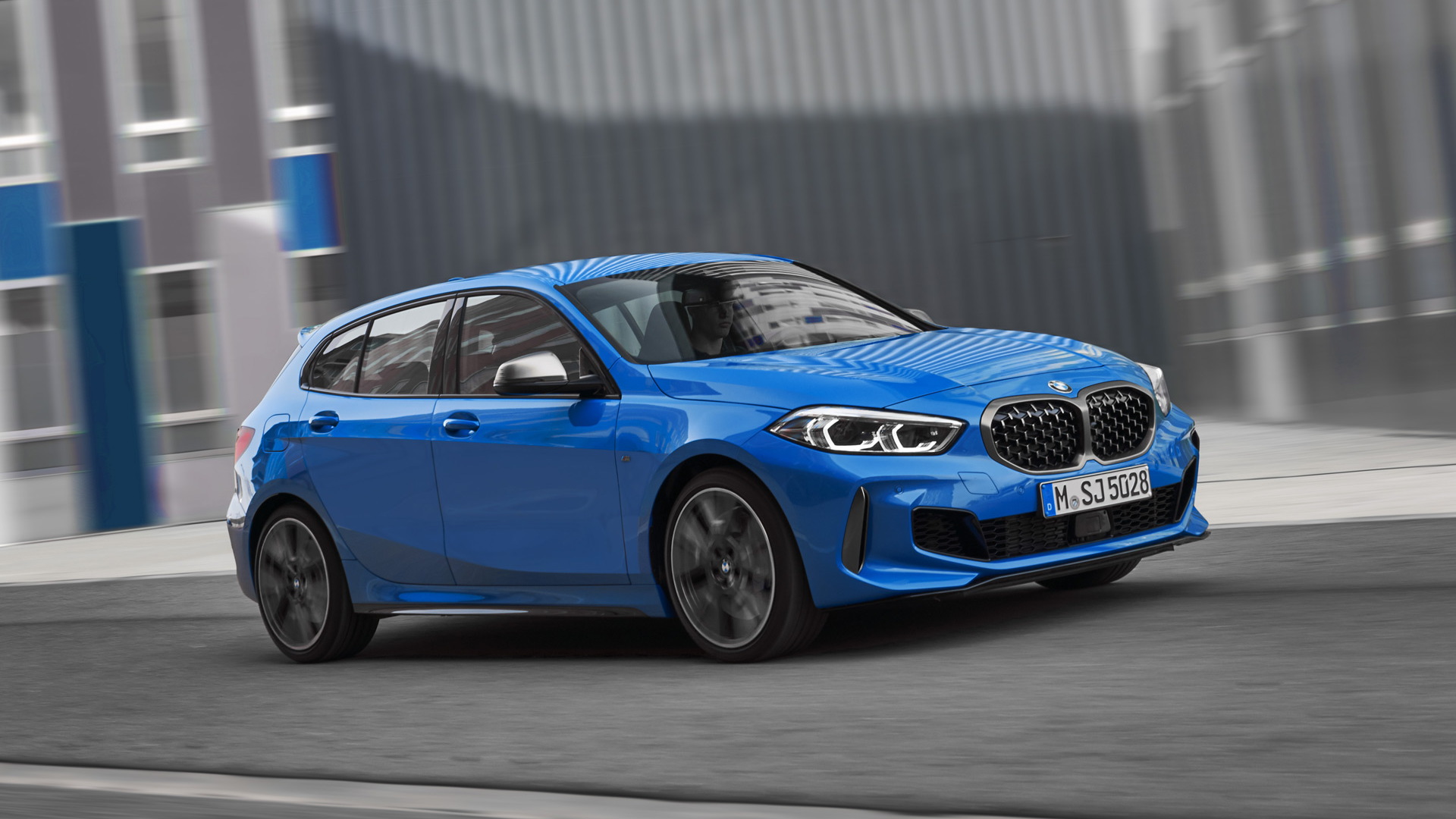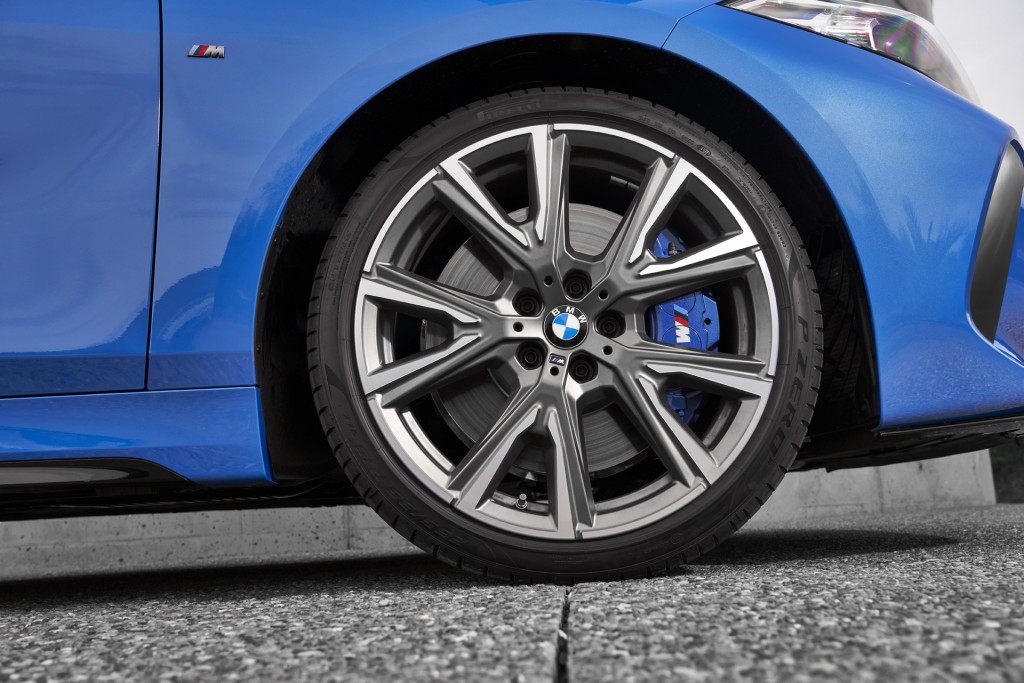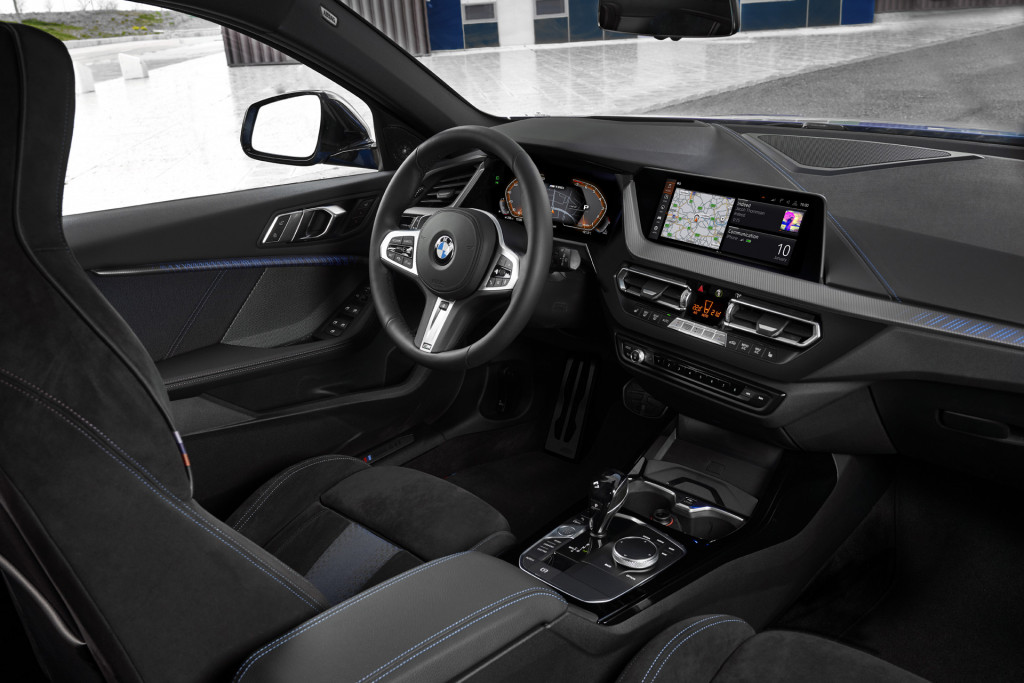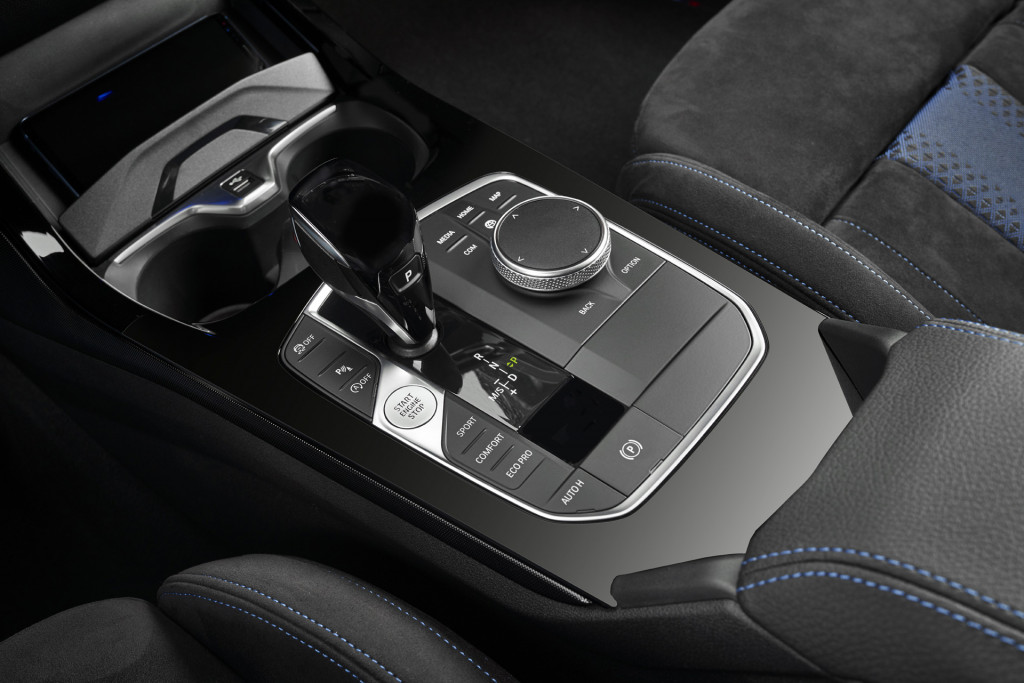
The BMW 1-Series hatchback has always been somewhat of an
oddity in the world of compact cars, as it has always been offered with a
sporty rear-wheel-drive layout and available inline-6 engines. This isn't the
case for the third-generation
model that was unveiled on Monday.
The new 1-Series hatchback rides on a front-wheel-drive
platform, specifically BMW
Group's FAAR platform whose first application is the new hatch. The
platform is an update of the UKL design found in the BMW X1 and X2, with
improvements made to weight reduction and compatibility with electric
powertrains.
By using the FAAR platform, the new 1-Series hatchback sees
improvements in space thanks to transverse engine mounting and a low center
tunnel. BMW said space is up both in the cabin and the trunk compared to the
outgoing 1-Series hatch. The automaker confirmed 1.18 inches more knee room in
the rear and an extra 0.7 cubic feet in the trunk, and only a 5-door body is
being offered this time around.
A downside of FWD vehicles compared to those with rear drive
is understeer, where a vehicle tends to turn less into a corner as the front
wheels are the first to lose grip. Among the solutions aimed at preventing this
is what BMW calls actuator contiguous wheel slip limitation, or ARB for short.

The technology already features in the i3 and works with the
stability control to help prevent the wheels slipping by reducing power quicker
than most stability control systems can on their own. On top of this is a yaw
control system that further aids the handling by braking a wheel that's
slipping. Of course, all-wheel drive is also available on some models in the
new 1-Series range.
Another downside of the platform switch is the farewell to
inline-6 engines, due to the transverse engine mounting. As expected, the most
potent engine in the new 1-Series hatchback is a 2.0-liter turbocharged
inline-4 delivering 306 horsepower. It features in the all-wheel-drive M135i
xDrive, which also comes with a standard 8-speed automatic and limited-slip
differential. Other models feature less powerful gasoline and diesel
powertrains.

Inside is a digital instrument cluster and large
infotainment screen. Controlling the vehicle can be handled via buttons on the
steering wheel and center console, or through the touchscreen capability of the
infotainment screen or natural-speak voice activation or various hand gestures.
BMW also loads the car with a number of useful electronic
driver aids, one of which is the reversing assist first seen in the 8-Series
flagship. The system can memorize steering movements for 50-meter
intervals, when the speed driven is no more than 22 mph, and then execute them
in reverse, causing the car to travel along the exact same line it took when
moving forward.

Sales of the new 1-Series hatchback is confirmed for the
fall, with a public debut pegged for September's 2019 Frankfurt International
Motor Show. While the car isn't expected on sale in the United States, we
should see its same technologies featured on those BMWs based on its FAAR
platform sold locally. One of these will be a 2-Series
Gran Coupe confirmed for November's Los Angeles Auto Show.
by Viknesh Vijayenthiran
http://www.boscheuropean.com
No comments:
Post a Comment